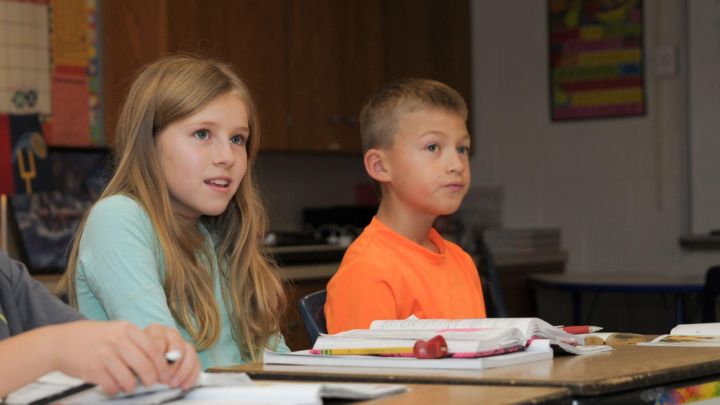Anxiety in the Classroom
It's a new year...so what is there to worry about??
Now that we have made it through another packed holiday season (some of us while trudging through wicked winter weather), we can finally settle down and look forward to rolling into the school routine once again. And that should be comforting…right? But for many of us, especially the kids, it’s not. So let’s take a minute to consider what “worry” looks like in our students and then let’s use our fresh 2014 brains to come up with a few new ways to help.
First of all, here’s a list of behaviors that might mean your students are worried (even if they don’t say it out loud):
- “deer in headlights” look on their face
- tries to avoid school by reporting aches and pains that are not real
- frequent requests to go to the bathroom
- seems really “cranky” in the morning before school and also on Sunday night
- cries or tantrums in class, especially on test days
- stands alone on the playground
- intense and rigid reliance on rules, tattles or says “it’s not fair” a lot
- perfectionism
OK, that was a very long list. And I bet most of us grownups, as well as our kids, have engaged in many of those behaviors more than a few times. That might be totally normal, but it might not. If those behaviors are so frequent or severe that they make it hard to be productive, or hard to keep our relationships healthy, or hard to have fun…we need to find professional help.
In the meantime, here are some strategies that we as teachers and parents can try any day to relieve the worry. Go ahead, give a few of these a try;
- get to know your students individually early in the year
- help your students relax before a test by using deep breathing or stretching activities
- maintain a peaceful and predictable classroom environment
- provide accommodations subtly and respectfully, giving choices when possible
- be consistent with your home/school communication, reporting both strengths and difficulties
- engage in academic “time-in” by having your students complete educationally relevant activities that are easy and fun for him or her (e.g. word searches, math puzzles, jigsaw puzzles, drawing, Rubik’s Cube, etc.) for a few minutes each day
- smile
So now that you think about it, there may be stuff to worry about in this shiny, new year. Especially if you are a student who struggles with academics and with friends at school. But the great news is that there are lots of things to do about that and most of them don’t cost money or take a lot of time. I don’t know if you are sick of the whole “new year resolution” thing, but I would challenge you to make one right now. And it may go something like this;
“I will make an extra effort to notice my students who might be worrying too much and I will do one new thing to try to make them feel better.”

Sherri Rozema, Ph.D.
School Psychologist
Sherri Rozema, Ph.D. is a School Psychologist at All Belong where she enjoys working with individual students to study their strengths and difficulties, and THEN working with parents and teachers as a team to improve their school experiences.
